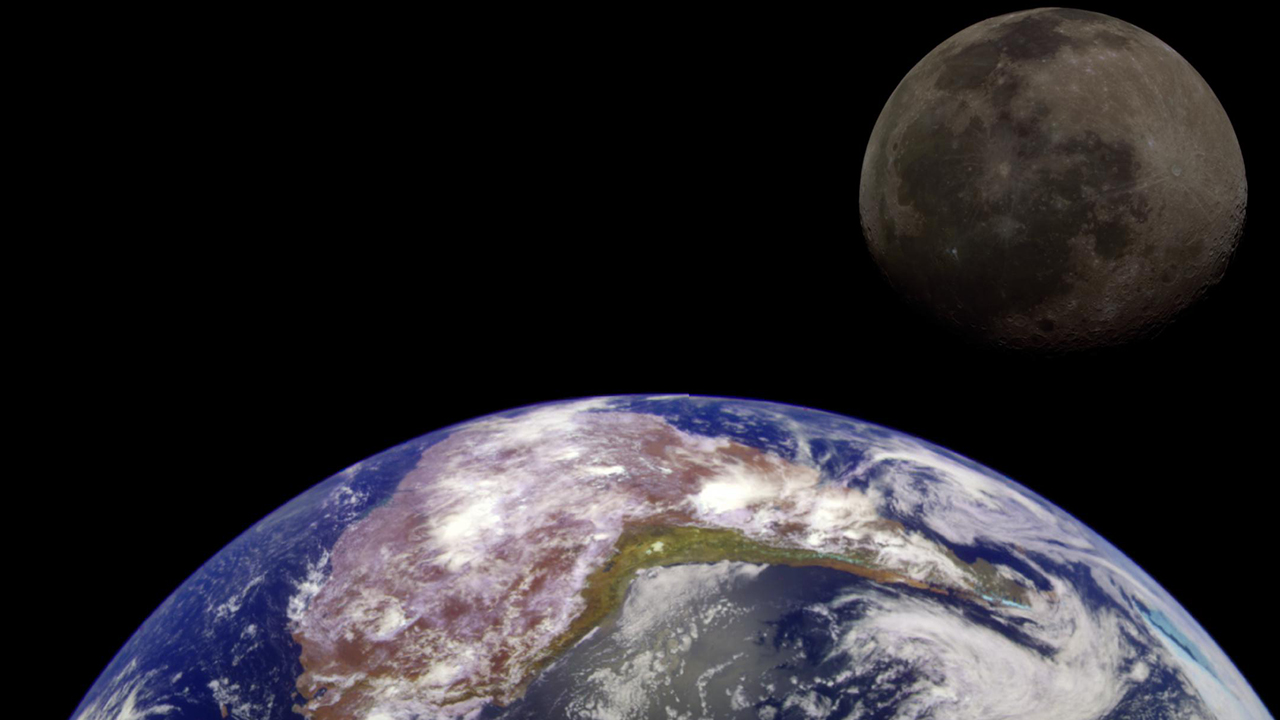On July 20, 1969, Apollo 11 astronauts Neil Armstrong and Buzz Aldrin became the first humans to set foot on the moon, and in the last five decades since that historic event, research and exploration into all things lunar have not waned.
Focusing on space- and moon-related research, the NASA Exploration Science Forum hosted at The University of New Mexico from July 22-24, will bring students, educators, researchers and space enthusiasts from around the country — and even an astronaut or two — to campus for a variety of presentations, panel discussions and community events.
The event will be held at the Student Union Building and is organized by the Solar System Exploration and Research Virtual Institute (SSERVI). Information on registration and attendance can be found on the NASA Exploration Science Forum website.

"The overall focus of the NASA Exploration Science Forum is on our next target for human exploration of the solar system — the moon," said Charles (Chip) Shearer, organizer and a Department of Earth and Planetary Sciences research professor with UNM's Institute of Meteoritics. "This year's overarching theme explores how do we successfully explore the moon — unravel its origin, evolution, and current state, as well as identify potential resources for sustained human activities on the moon and beyond, develop an Earth-moon economy, and engage the public during this great human adventure."
Shearer is also the team leader of the NASA CASA Moon Initiative. CASA Moon, which is the Center for Advanced Sample Analysis of Astromaterials from the moon and Beyond, is a NASA SSERVI node established at UNM in 2023 that includes an international team to focus on lunar sample measurements, experimental studies, remotely collected data and modeling to improve the level of the understanding of the geologic evolution of the moon and to explore its resources.
Before the public forum begins, a small workshop will be held on July 19 for New Mexico K-12 educators. Through this workshop, educators will become certified in handling lunar samples and will be able to use samples collected from the moon in their classrooms. Further, educators will be exposed to planetary exploration and engineering activities.
In addition to presentations and discussions that explore scientific subjects related to space, there will also be moon-themed art on display created by UNM students as part of the Lunar Arts Award Exhibition with UNM's ARTSLab and the Space Sustainability Research Grand Challenge.
And there will be moon art in another form — music — featuring music from a band called From the Peaks (whose members are STEM students from several California universities) that produced a song called "Artemis" about the NASA Artemis lunar exploration program.
"We're trying to reach out to a broad range of New Mexicans," Shearer said.
Shearer said this is the first time in its history that the annual NASA Forum has been hosted at UNM. In addition to initiatives like CASA Moon, UNM is a natural location to explore space-related topics, with one of UNM's Grand Challenge initiatives being Sustainable Space Research.
Grand Challenges was launched in 2018 by UNM President Garnett Stokes to tackle problems of global, national and regional significance that require researchers to work together across disciplinary boundaries to develop and implement solutions. Grand Challenges address problems that, when solved, have a significant positive impact on people and society. Since its launch, new teams and topics have been added to the initiative, with Sustainable Space Research being included in 2023.
Shearer, who joined UNM in 1990, developed a passion for geology as a child, but it wasn't until he was conducting postdoctoral research that he became interested in combining that knowledge with space-related applications. Even after decades in the field and many changes in the space industry over the years, he is excited about the future of NASA and its potential to propel New Mexico's economic development and human capital.
"Hosting this NASA event is an honor for me," he said. "It recognizes the evolving importance of planetary and space research at UNM, the developing commercial space industry in New Mexico, and our growing partnership with national labs in New Mexico. Further, it is a link to our New Mexico space heritage."






